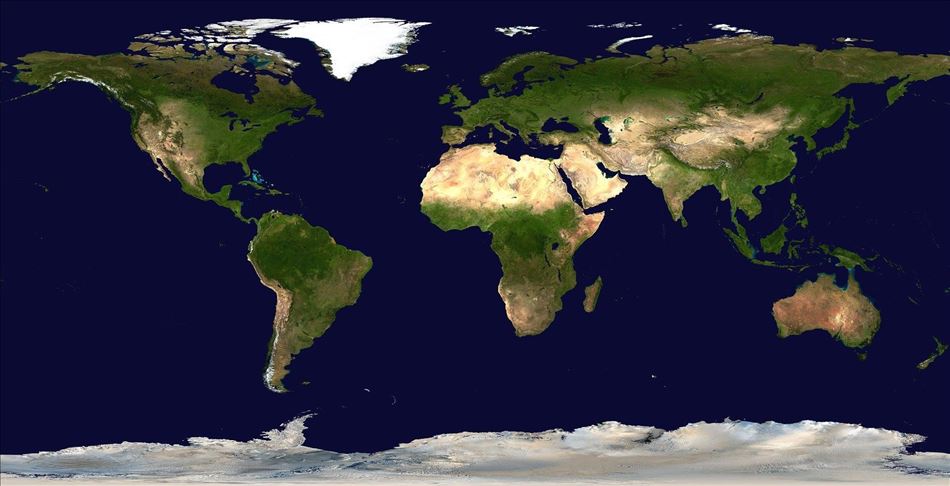ID :
564181
Wed, 04/29/2020 - 21:10
Auther :
Shortlink :
http://m.oananews.org//node/564181
The shortlink copeid
Liberal values may decline after pandemic: Experts

Experts suggest that COVID-19 pandemic may promote regional cooperation instead of international organizations
ANKARA
In the aftermath of the novel coronavirus pandemic, nationalism and regional blocs could gain importance at the expense of international structures and liberal democracy could decline, some experts have suggested
Speaking to Anadolu Agency, Maxim Bratersky, an international relations professor at the Moscow-based Higher School of Economics, said the outbreak would continue to have profound impacts on world trade.
Bratersky said the current crisis was very similar to the Great Depression in the years between the two world wars and would cause income to decline and unemployment to rise in many countries.
He also identified a problem of global leadership, with only three actors capable of playing this role: the US, EU and China.
"For different reasons, all of them do not play this role. China does some activity lately. They extended some aid to different countries. But because of the lack of international cooperation, because of the rivalry, because China has not been recognized as a global leader by most of the countries, China is not able to play this role either," he said.
Bratersky said that though Russia could act on a bilateral basis with other countries, it could not practice "first because of the lack of resources and second because of the lack of international recognition," since most Western countries would not accept it.
He underlined that international actors such as the UN and World Health Organization (WHO) failed to effectively address the global pandemic.
"What we used to call globalization will be stalled for some time, probably not forever, but for the nearest years," he said.
"And what will be happening [instead] is probably further regionalization. So, different regional alliances will continue to strengthen themselves, because it's the oldest thing that to some extent works as well," he added.
Bratersky said that though the EU was not faring well against the crisis, the Russian-sponsored Eurasian Economic Union "doesn't seem to be very active either."
"Russia, Kazakhstan and Belarus, they solve problems by themselves. I don't see any in the group leadership from this organization. So, probably our expectations about regionalization should not be over-exaggerated either, because so far, what we see is a return of nationalism."
Democracy in the backseat
Adam Szymanski, an academic at Warsaw University, said that though COVID-19 would remain part of our lives like the flu, its economic consequences would pose a far greater risk.
Szymanski pointed out that current governance practices now in a state of emergency could continue only as long as the pandemic crisis continued.
"The liberal model, which has been in crisis for some years now, may be redefined," he said, as people in many countries already prioritize issues other than democratic rules and values are more important. "This attitude can be even strengthened."
People may begin to see democracy as something other than "full civic rights or rule of law," said Szymanski, adding that instead, effective leadership and stability could become more important.
Szymanski said such a shift in the model of governance would also have an impact on resolving other crises that the EU as well, such as migration.
"The need for economic recovery will definitely have a substantial impact on the integration processes -- most efforts will be put on coping with economic problems at the cost of some long-term integration projects," he said.
"However, there was always in the EU the learning process and the current pandemic situation can generate some adjustment processes, making the EU more resilient to such security issues as epidemics and its consequences."
He also said international organizations such as the UN and WHO were not prepared for such a crisis as the current pandemic.
"I think they reacted in the way such organizations could react -- with their structures and decision-making process. I don't think they could act much faster and more effectively, because there are certain procedures which need time --- particularly in this concrete case, underlined Szymanski.
"That is why we waited, [for example,] for recognition of the epidemic as pandemic. Nevertheless, it is another example proving that there is a long way ahead before we can talk about effective global governance," he added.
*Writing by Busra Nur Bİlgic Cakmak





